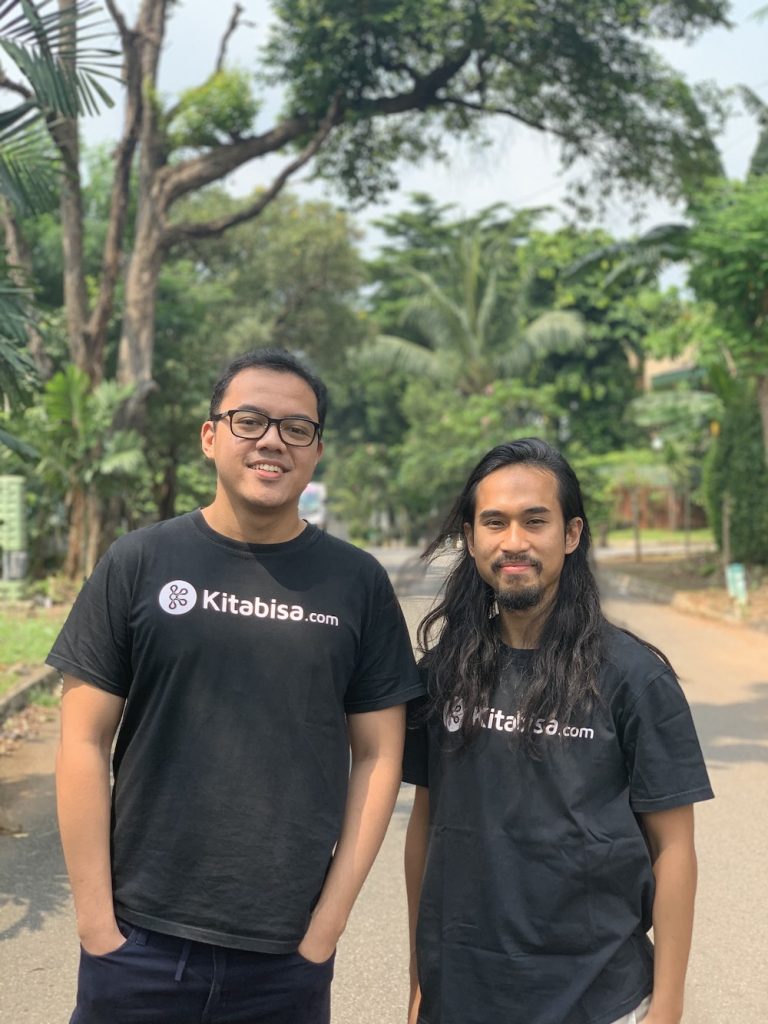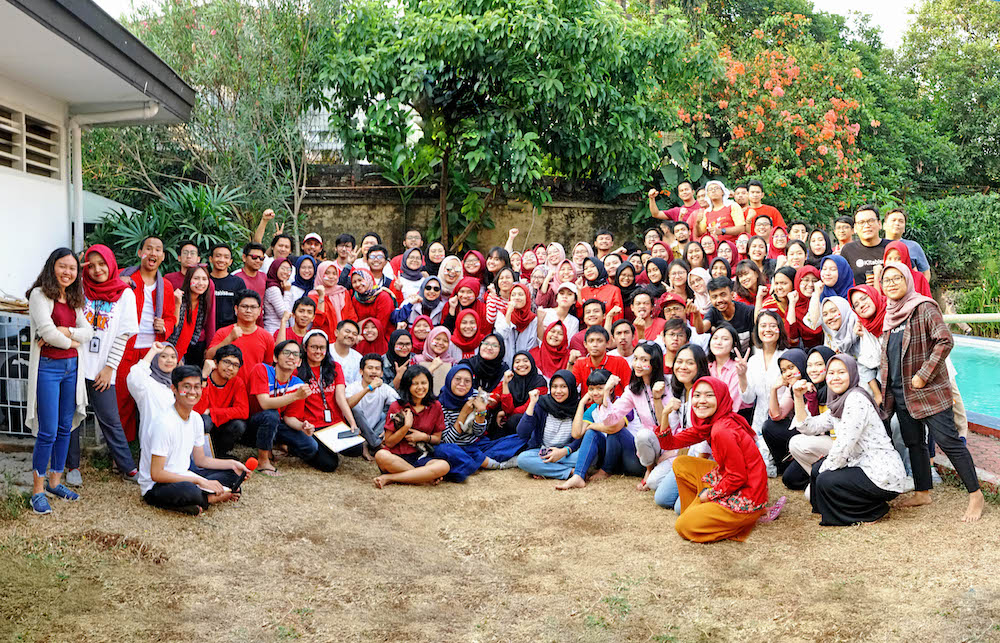In 2013, Alfatih Timur graduated from the University of Indonesia with a degree in economics and a passion for social work. Timur was constantly part of social and student activities during his college years, and he eventually landed a job at a management consulting firm called Rumah Perubahan after finishing school. The firm is owned by one of his college professors, Rhenald Kasali, who is also a prominent businessman.
“At Rumah Perubahan, I met a lot of friends from nonprofit organizations, and I saw that many kindhearted people want to help others through various social activities, but they had difficulties in raising funds,” Timur told KrASIA in a recent interview. “Inspired by crowdfunding programs in the US such as Kickstarter and GoFundme, I founded Kitabisa with a mission to ‘connect kindness.’”
Along with his co-founder, Vikra Ijas, Timur established Kitabisa as a social initiative. At first, the two worked with a number of communities and college organizations, starting small by setting objectives like constructing a library. One of Kitabisa’s early projects was to raise IDR 160 million (USD 10,700) to save a street children’s school in the West Java city of Depok from eviction. They managed to hit their goal. Building upon those successes, the duo decided to focus on crowdfunding, which Timur said wasn’t a widely familiar concept in Indonesia at the time.
The biggest challenge for Kitabisa was to build trust. In order to court donors, Kitabisa applies a “three plus one” verification process. Anyone who wants to raise funds through Kitabisa must verify their identity through a know-your-customer (KYC) process, much like any fintech platform.

Aside from their photo ID and a headshot, a fundraiser needs to provide relevant documents to justify their campaign. For example, a patient who seeks donations for medical treatment must share their medical records and hospital bills; Kitabisa’s team then follows up with the medical facilities to establish their veracity. And, finally, all donations are channeled into Kitabisa Foundation’s account; the platform disburses cash in stages based on the needs of fundraisers.
“This is what distinguishes us from other crowdfunding platforms, because we closely monitor how the funds will be spent,” said Timur. Donors can see how their money is being used as the platform posts updates on each active campaign page regularly.
On top of three layers of verification and due diligence is Kitabisa’s emphasis on public feedback. “The public can report a campaign if they find anything suspicious. Our trust and safety team will immediately conduct an investigation. If there is any fraud, we’ll stop the campaign and return the donations to each donor,” he continued.
Kitabisa is licensed and overseen by the Ministry of Social Affairs, and is bound by laws governing the collection of money and goods that cover all public fundraising programs. The platform reports the details of its crowdfunding campaigns, including the amounts that were raised and how the money was channeled to recipients, so that they are audited by the ministry. The idea is to maintain transparency and accountability.
Nonetheless, Kitabisa is a social enterprise, not a charity, Timur said. The platform takes 5% from the amount raised by each campaign to cover the company’s operational costs. “This is with the exception of zakat [obligatory Islamic alms] and causes related to national disasters, such as the COVID-19 crisis. We don’t take any fees from them,” Timur said.
The startup raised an undisclosed amount of seed funding led by 500 Startups in 2015, according to Crunchbase. Kitabisa also bagged a Series A investment last year, but Timur declined to reveal the details.
The COVID-19 crisis “brings out the best of humanity”
Kitabisa is now the most popular crowdfunding platform in Indonesia. Last year, it began partnering with Gojek for GoGive, a service where users can make donations via Gojek’s app. Kitabisa also collaborates with other widely used apps, such as Tokopedia and Shopee, both of which have digital donation features.
The platform has become even more popular during the COVID-19 pandemic, as it now collaborates with major celebrities and media outlets for various fundraising projects. For instance, Kitabisa is a partner for online benefit concerts hosted by Narasi TV and Kompas TV, which managed to collect more than IDR 10 billion (USD 670,700) and IDR 7 billion (USD 469,500), respectively, and directed the money to vulnerable communities, such as informal workers whose income has evaporated because of social restrictions.

Between March and April, Kitabisa recorded 3 Million individual donations through the platform, a 200% increased compared to the previous month, demonstrating the spirit of solidarity shared by Indonesians in the face of hardship, Timur said. “I think this is good news that Indonesia faces this pandemic with the spirit of gotong royong [collective action, or sharing a burden within a community]. We rally together in times of crisis and take care of each other. ”
Timur pointed out that according to the Charity Aid Foundation’s world giving index in 2018, Indonesia is the most generous country in the world, followed by Australia, New Zealand, and the US. The COVID-19 crisis has caused many tragedies, but Timur believes the pandemic also brings out the best of humanity, as people do what they can to help one another. “Indonesian founding father Mohammad Hatta once said that gotong royong is the root of Indonesian society. This is reflected in the many social programs and donations given by the community to help our brothers and sisters affected by the pandemic.”
In the past two months, Kitabisa has channeled more than USD 10 million toward COVID-19 relief efforts, collaborating with nonprofits, religious organizations, corporate CSR programs, local communities, as well as thousands of verified individuals who either initiated fundraising campaigns, or provided support to distribute aid.
Going forward, Kitabisa wants to inspire more people to donate, in part by ensuring that potential donors in tier-2 and tier-3 cities understand that its crowdfunding platform is convenient and safe. “Our donors mostly come from Jakarta and other major cities. There are more than 267 million people in Indonesia. We can make a great impact on society if we are connected to each other to do good.”
This article is part of KrASIA’s “Startup Stories” series, where the writers of KrASIA speak with founders of tech companies in South and Southeast Asia.
